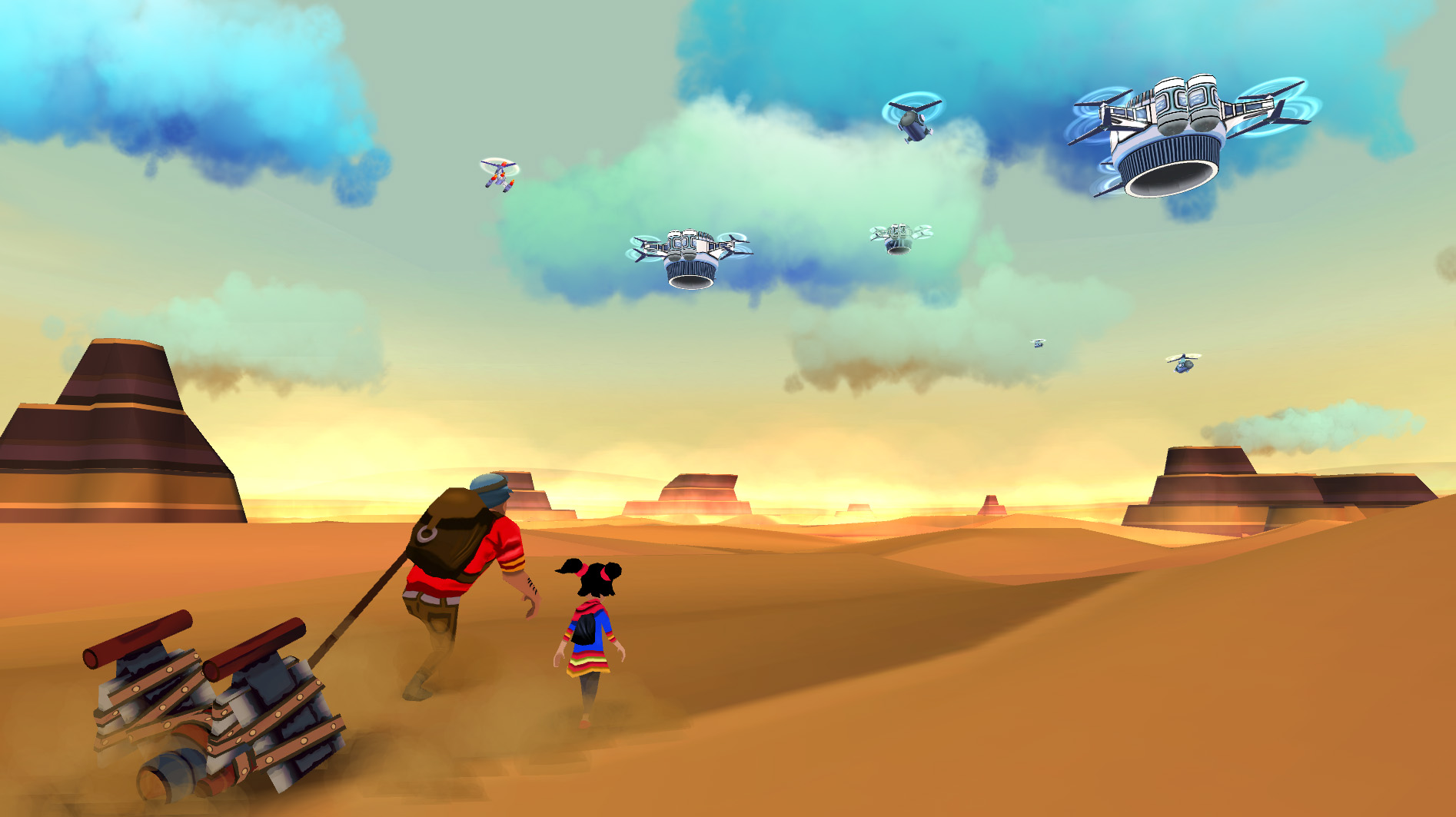Cloud Chasers is a beautiful little mobile game, but it’s also deeply sad.
The story-driven adventure, out now on iOS and Android devices, is about the journey of a father and daughter to find a better life. It mirrors the journey currently being made by thousands of migrants across Europe and the Middle East in a crisis that only looks set to worsen.
Making a game out of such a highly emotive political issue isn’t an easy thing to do. But the tiny Swiss developer Blindflug Studios is used to tackling meaningful subjects — after all, its first mobile title was First Strike, a game about nuclear war.
Even so, the team thought hard before deciding to make Cloud Chasers, worrying whether, as three white men and one white woman living in one of Europe’s richest countries, they were the right people to make such a game. Having spent a couple of hours curled up with Cloud Chasers, though, it’s pretty clear they made the right call, as they’ve created a game that encourages reflection without beating you over the head with a message.
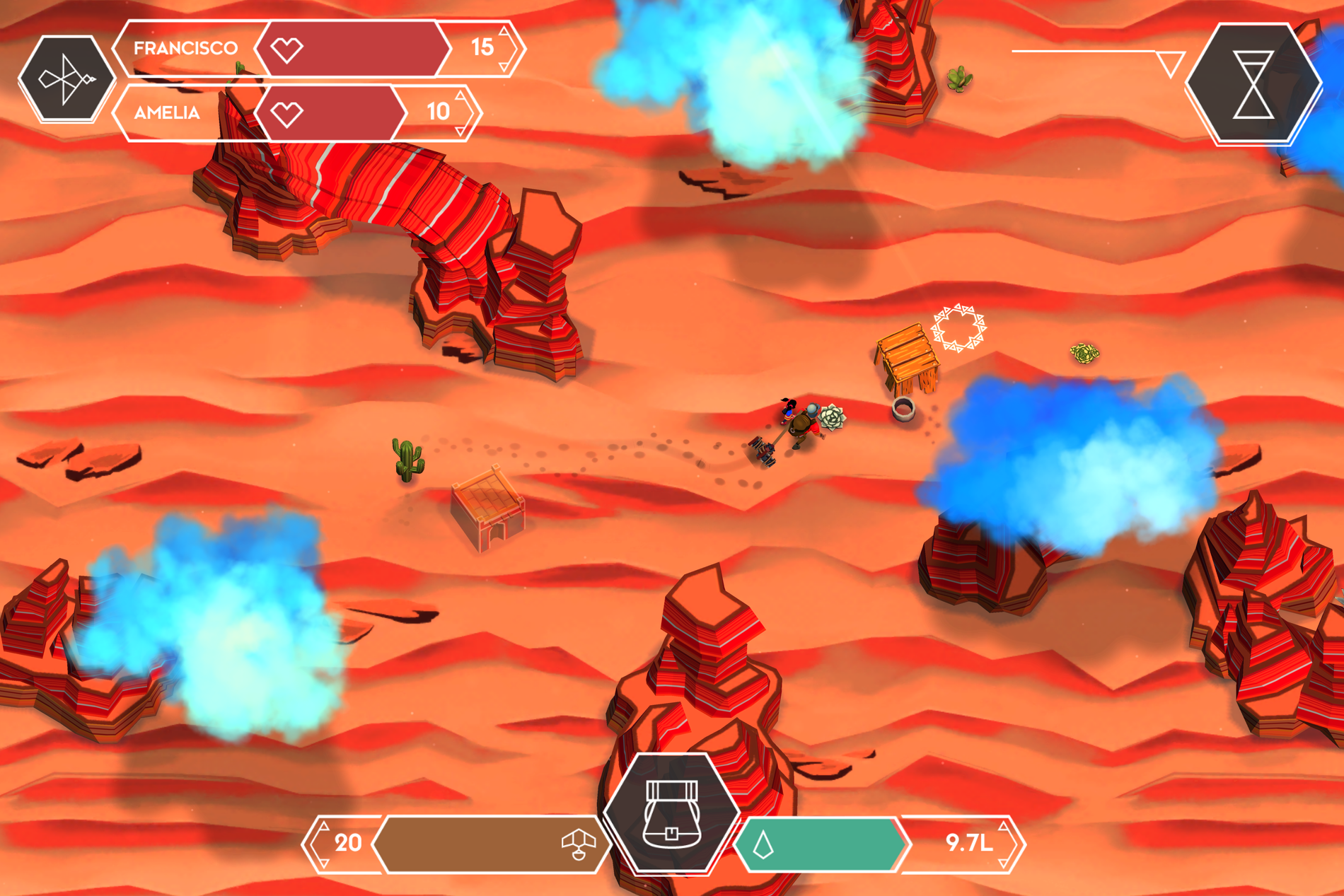
Anger about indifference
First Strike was an unexpected success for Blindflug, selling 150,000 copies worldwide and helping to bootstrap the company. A year ago, cofounders Moritz Zumbühl and Jeremy Spillmann sat down to decide how they could follow it up.
“I personally was really, really angry because the migrant crisis was already at a height, and a lot of people had lost their lives, but nobody really seemed to care about it,” Zumbühl told me in a phone call earlier this week. “So I asked my team, ‘Can we do a game about migration?’
“In the beginning, we were very, very sceptical because with nuclear war it’s quite clear — everyone’s against nuclear war. But with migration it’s quite complicated, and if you’re a little indie game studio, and you’re not a political player — and you don’t want to be a political player — this can be very dangerous.”
But after some research into the subject, Blindflug decided to press ahead, hoping — but never assuming — they could create something to at least make people think.
“We read books, we read a lot of articles — from the States, Europe, Australia — and we discovered that it’s almost the same everywhere,” said Zumbühl. “We talk about migrants when they arrive, but we almost never talk about their journeys.”
The team stumbled over a United Nations report which examined how climate change may exacerbate the refugee crisis. From this, Spillmann had the idea to set a refugee story in another world — a planet which has dried out, where only the rich can afford to harvest the few remaining clouds.
By separating the story of Cloud Chasers, and its father and daughter team of Francisco and Amelia, from reality, Blindlug created a story it sees as a parable more than a true migration tale. It’s a story which tracks Francisco and Amelia’s journey to a better place, their relentless efforts to harvest water, and the random — often moving — encounters they have along the way.
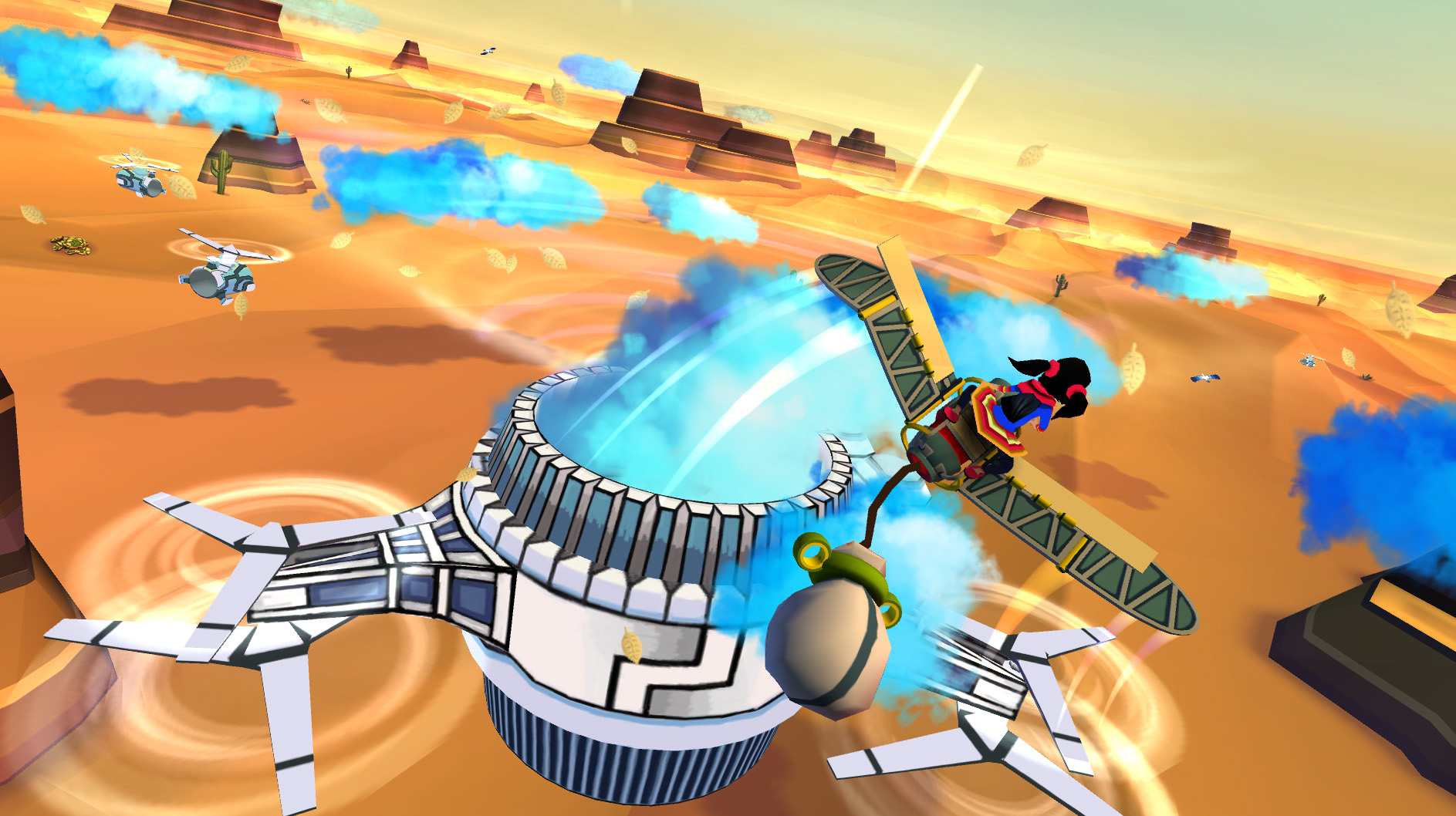
Harvesting the clouds
In order to stay alive in the harsh desert, Francisco must regularly launch Amelia into the air in a delicate homemade glider designed to harvest clouds — which the player then controls as she glides around.
But Amelia’s time in the sky becomes increasingly dangerous as the game moves on. She runs into brutal cloud-harvesting machines, and they don’t hesitate in trying to take her down. It felt awful sending this tiny girl to her death, and I wondered why Blindflug had chosen to make her so very vulnerable.
“We had a long discussion if we should do that or not,” said Zumbühl, “But it was absolutely necessary to tell the story how we wanted to tell it. It’s our responsibility as art makers to get people thinking. We don’t tell the player what he has to think; we just want to get him started thinking.
“The sad but brutal truth is that children do die on their journey for a better land. It would almost feel dishonest to not give it as a possibility in the game. It’s the player who can save her.”
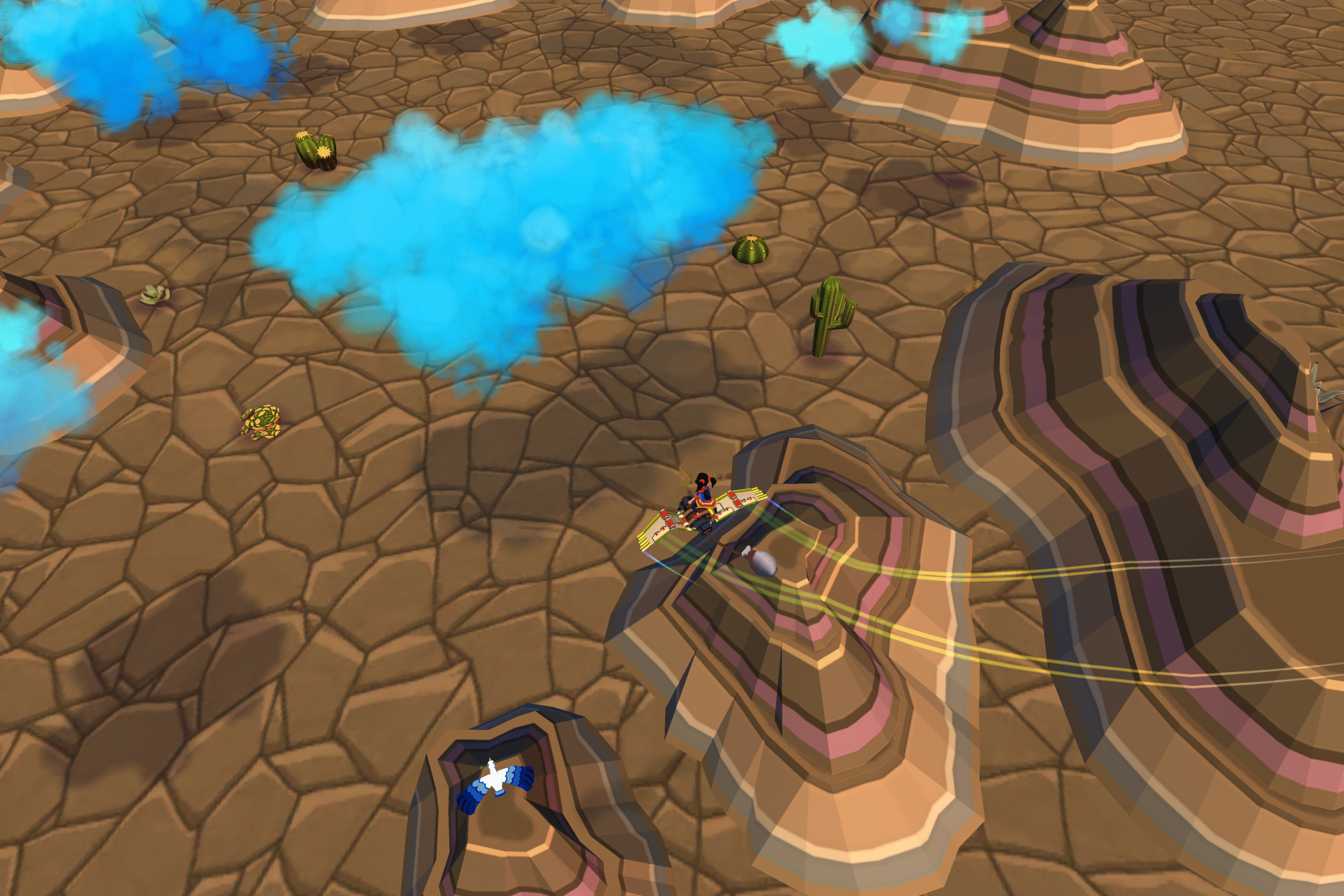
It’s hard because it needs to be
Cloud Chasers is not a game you’ll complete on your first attempt. In fact, I must have failed around four times in my first hour with it. And failure is potentially heartbreaking, with just a note left in the sand to describe the deaths of Francisco and Amelia.
Chance encounters can yield new equipment for Amelia’s glider and items to use and trade, which can make the game a little easier. These encounters can also lead to tender moments between father and daughter, along with some tough decisions to make. But, above all else, the difficulty of making this relentless journey to The Spire — modelled after Melilla, the Spanish enclave in Morocco surrounded by a six-meter-high fence to keep out migrants — is what stands out.
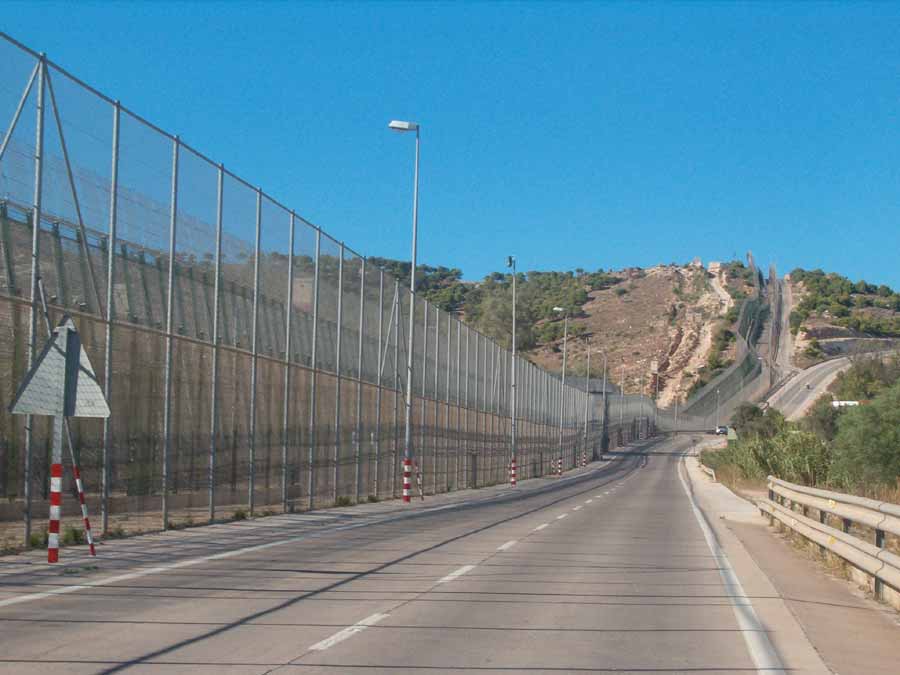
Cloud Chaser’s high difficulty level is deliberate, explained Zumbühl, before telling me about one of the game’s early testers — his mother-in-law, who he often supplies with recommendations for new mobile games.
“She was totally frustrated,” he said. “I gave her the game at night before bed, and the next morning she came to me and said, ‘Oh, it’s so unfair. You made the game so hard. Why do they have to die all the time?’ and I said to her, ‘Because it’s the truth,’ and she was [like], ‘Oh, yes. Oh, wow.’”
And that’s Zumbühl’s biggest hope for Cloud Chasers, beyond that people enjoy playing the game. “My biggest hope is that people think about [the journey of migrants],” he said. “I’m not a politician; I don’t have a solution. The biggest hope we have [is] that people start thinking and start talking to their friends or talking in their families.”


